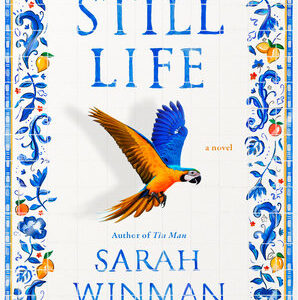Emily Ladau on How to Be a Better Ally to the Disability Community
In Conversation with Brad Listi on Otherppl
Emily Ladau is the guest. Her new book, Demystifying Disability: What to Know, What to Say, and How to Be an Ally, is out now from Ten Speed Press. A complete transcript of this interview is available at otherppl.com.
From the episode:
Brad Listi: That’s a nice opportunity to segue into talking about what you refer to in the book as “inspiration porn.” Can you explain that to people who are listening? I think it’s intuitive, but it’s worth dissecting a little bit.
Emily Ladau: I think that inspiration porn as a term really stops people in their tracks, because the word porn immediately has negative associations for a lot of people. And it shouldn’t. There are certainly ways that pornography itself can be created in a positive and supportive atmosphere, but what we generally associate the term porn with is objectification. So when we use the term inspiration porn in reference to disability, we’re talking about how we often objectify disabled people for our own warm, fuzzy emotions. That happens when you see, for example, a headline that says “boy with down syndrome crowned homecoming king,” or “little girl with spina bifida comes in last place in the race, but inspires everyone.” It’s these narratives we create of overcoming that we wouldn’t necessarily think of if someone was not disabled.
My question always has been, would this same story become a clickbait headline if this person wasn’t disabled? Somebody standing up in their wedding to dance after they’re paralyzed, somebody walking across the stage at high school graduation—likely not a story if disability is not involved. Inspiration porn is a term that was popularized by Stella Young whose Ted Talk I highly recommend. It’s called I’m Not Your Inspiration, Thank You Very Much. She explains that we often exploit disabled people for the sake of making ourselves feel better or feel good about ourselves when we’re not disabled. And that becomes an incredibly harmful narrative that follows disabled people around and completely denies the nuances of our humanity.
In the book, I try to break down a couple of different types of inspiration porn. There’s a pretty good chance that many of the people who are listening to our conversation right now have probably shed a tear or two with them, or have thought to share it on social media, or have said, “Wow, this is a really lovely story to end an ugly news hour.” And it’s not that I begrudge that person; I’m not bitter about that. I think personal achievements in moments of importance are wonderful, and I want to celebrate them. But I don’t want to do it simply because that person is disabled. To me, that’s not looking at the whole human. So inspiration porn is an overarching term to describe what we mean when we’re talking about those types of stories.
*
To listen to the rest of the episode, as well as the whole archive of Otherppl with Brad Listi, subscribe and listen on iTunes or wherever else you find your favorite podcasts.
Emily Ladau is an internationally known disability rights activist, writer, and speaker. She is the editor in chief of the Rooted in Rights blog, a platform dedicated to amplifying authentic narratives of the intersectional disability experience. She also co-hosts The Accessible Stall, a podcast about disability issues. Ladau’s writing has been published in outlets including the New York Times, HuffPost, CNN, Self, Salon, Vice, The Daily Beast, Variety, and Marie Claire Australia. Her work is also included in the Criptiques Anthology and About Us: Essays from the Disability Series of the New York Times. She has served as an expert source on disability issues for outlets including NPR, Vox, Washington Post, and Teen Vogue, and has been featured in a range of press outlets including Newsday, BuzzFeed, CBS News, and U.S. News & World Report.




















